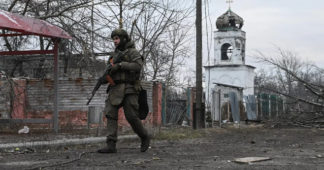Several countries in Europe have been scrambling to restore electricity after a huge power cut caused blackouts
By Jasper Jolly
Apr. 28, 2025
Spain, Portugal and some of south-west France suffered a massive power cut on Monday, with major cities including Madrid, Barcelona and Lisbon among those affected.
Houses, offices, trains, traffic lights and even the Madrid open tennis tournament were all hit, causing chaos for millions of people and prompting a scramble by the Spanish and Portuguese governments and network operators to understand the problem and race to fix it.
What happened?
Red Eléctrica de España (REE), Spain’s electric network, said Spain and Portugal were hit by “el cero” – the zero. Its Portuguese counterpart, Redes Energéticas Nacionais (REN), said the outage started at 11:33am Western European summer time.
By mid-afternoon the Spanish operator, which is partly state-owned, said that it had started to recover voltage in the north, south and west of the Iberian peninsula. The recovery process could only be carried out gradually, to avoid overloading parts of the grid as each generator connects.
Endesa, Spain’s largest energy utility with 10 million customers, and Iberdrola, the second largest provider, said they were working with REE in accordance with established protocols.
What caused it?
The Portuguese prime minister, Luís Montenegro, said that the issue originated in Spain. Portugal’s REN said a “rare atmospheric phenomenon” had caused a severe imbalance in temperatures that led to the widespread shutdowns.
REN said: “Due to extreme temperature variations in the interior of Spain, there were anomalous oscillations in the very high voltage lines (400 kV), a phenomenon known as ‘induced atmospheric vibration’. These oscillations caused synchronisation failures between the electrical systems, leading to successive disturbances across the interconnected European network.”
The risks posed to electrical systems by big variations in atmospheric temperatures are well known in the industry, even if it is rare for problems to manifest on this scale.
Continue reading at www.theguardian.com
We remind our readers that publication of articles on our site does not mean that we agree with what is written. Our policy is to publish anything which we consider of interest, so as to assist our readers in forming their opinions. Sometimes we even publish articles with which we totally disagree, since we believe it is important for our readers to be informed on as wide a spectrum of views as possible.











